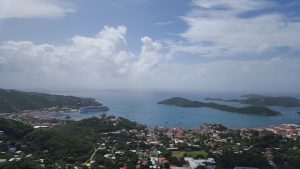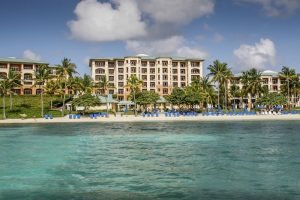US Virgin Islands company formation offers some very favorable tax and liability protection benefits. In fact, Newsweek called the U.S. Virgin Islands “a made-in-America offshore tax haven.” The organized, unincorporated territory of the United States is comprised of the islands of St. Thomas, St. John, and St. Croix. US Virgin Islands incorporation is especially attractive for those seeking business continuity with the United States in a low-tax jurisdiction.
Corporations in the U.S. Virgin Islands are governed by the Uniform Limited Liability Company Act of 1998. Under the laws of the U.S. Virgin Islands, corporations are legal entities established by an individual or groups. They are established to conduct particular types of business and transactions. In the U.S. Virgin Islands, corporations exist as separate legal entities from their shareholders, directors, and employees. Corporations may sign contracts, assume liability, sue and be sued in the same manner as individuals.
Types of Corporations
Corporations in the U.S. Virgin Islands are based on the standard Delaware model. There are three types of corporations which may be formed in the U.S. Virgin Islands:
Domestic Corporations
Domestic corporations are corporations whose business operations are based in the U.S. Virgin Islands. Domestic corporations may qualify for significant tax incentives under the Economic Development Commission’s tax incentive scheme. Domestic corporations may do business in the U.S. Virgin Islands or in the United States.
Exempt Companies
The U.S. Virgin Islands is the only jurisdiction in the world where a person who is not a U.S. national may establish a tax-free entity under the U.S. flag. An exempt company, called an offshore corporation in other jurisdictions, may not engage in business in the U.S. Virgin Islands or in the United States. U.S. Virgin Islands exempt companies are often used as holding companies for portfolio investments or for the ownership of aircraft registered with the U.S. Federal Aviation Administration. They are also frequently used as captive insurance companies.
Corporations established in the U.S. Virgin Islands have the ability to elect to be considered exempt companies provided that they meet certain requirements. Exempt companies in the U.S. Virgin Islands can be utilized by a number of other offshore tax planning structures. U.S. and U.S. Virgin Islands citizens, residents, and corporations are prevented from owning more than ten percent of the stock of a U.S. Virgin Islands exempt company.
Foreign Sales Corporations
Foreign sales corporations are corporations which are established under the laws of a qualifying foreign country or U.S. possession. Foreign sales corporations were created by the U.S. Congress in 1984 in order to provide a means for U.S. exporters to reduce their tax on export income. The U.S. Virgin Islands is home to more foreign sales corporations than any other jurisdiction in the world. It is possible for U.S. exporters to reduce the income tax levied against their profits from export sales by approximately 15%.
Foreign sales corporations in the U.S. Virgin Islands are exempt from all local taxes. They are also exempt from Virgin Islands income taxes with the exception of a nominal annual franchise tax and license fee. These benefits are guaranteed by a contract with the U.S. government for a period of up to thirty years.
There are two types of foreign sales corporations: regular foreign sales corporations and small foreign sales corporations. A regular foreign sales corporation has export sales which exceed US$ 5 million annually. Small foreign sales corporations have export sales which amount to US$ 5 million or less annually.
Regular foreign sales corporations are required to hold annual meetings in the U.S. Virgin Islands. However, it is possible to have these meetings held by a management company. Small foreign sales corporations are not required to hold annual meetings. The annual franchise tax for regular foreign sales corporations begins at US$ 1,000. Small foreign sales corporations are required to pay a flat annual franchise tax of US$ 400 or US$ 900 depending on the volume of the corporation’s sales.
Corporate Incentive Programs in the U.S. Virgin Islands
In addition to the normal tax schemes provided for corporations, U. S. Virgin Islands law provides a number of incentive programs designed to increase investment in the region.
EDC Tax Incentives
Corporations in the U.S. Virgin Islands are eligible for substantial tax incentives provided by the Economic Development Commission. The tax incentives are designed to encourage global companies in the manufacturing, service, high technology, and outsourcing sectors to choose the U.S. Virgin Islands as their jurisdiction of incorporation. These incentives are known as the EDC Program.
The EDC program provides the following advantages to qualifying corporations for 20 to 30 years:
- Corporate income tax is reduced by 90%.
- Personal income tax is reduced by 90%.
- 100% exempt from gross receipt tax.
- 100% exempt from business property tax.
- 100% exemption on excise tax payments.
- Customs duty is reduced from 6% to 1%.
- Royalty income from software developed in the U.S. Virgin Islands and sold outside the U.S. is eligible for a tax reduction.
- Corporations may rent real estate at below market rates in the St. Thomas and St. Croix Economic Development Parks.
- Other benefits:
- Duty and quota free export of goods produced in the U.S. Virgin Islands to the United States.
- “Made in the USA” labeling for products manufactured in the U.S. Virgin Islands
- Easy air access from the United States
Qualifying for EDC Tax Incentives
U.S. Virgin Islands corporations must meet the following criteria in order to avail themselves of EDC tax benefits:
- Corporations must provide full-time employment for a minimum of at least 10 persons. At least 80% of these individuals must be residents of the U.S. Virgin Islands. Residents must have been residing in the U.S. Virgin Islands for at least one year prior to being hired by the corporation. Enterprises engaged in non-labor intensive financial services may qualify as Category IV Designated Service Businesses. Businesses with this status are only required to employ five individuals full-time.
- Corporations must invest a minimum of $100,000 in an industry or business which advances the economic security or growth of the US Virgin Islands.
- Corporations must comply with Section 934 of the Internal Revenue Code.
- Benefits must be claimed by actual investors, not contractors, subcontractors, and other agents.
- Comply with all other federal and local laws, including environmental laws.
- Eligible activities include legacy Virgin Islands industries, product assembly and manufacturing, repair and maintenance, and export businesses. Facilities, tourism, and communications, designated service businesses, and international financial services are also included.
Jones Act Exemption
Domestic corporations in the U.S. Virgin Islands are exempt from the provisions of the Jones Act. The Jones Act is a cabotage law which requires that freight being moved between U.S. ports be carried on vessels sailing under the U.S. flag. Freight being carried between U.S. ports and the U.S. Virgin Islands by U.S. Virgin Islands corporations may be carried on foreign flag vessels.
Requirements for Incorporation in the U.S. Virgin Islands
Corporate Officers
Corporations in the U.S. Virgin Islands are formed by three incorporators who are responsible for electing the company’s directors. There is a minimum requirement of one director for every shareholder of the corporation if there are three or fewer shareholders. Directors must be naturally born individuals. Directors are not permitted to be corporations or other legal entities. U.S. Virgin Islands corporations are required to have three officers. The first officer is the president. The president must also be a director. The second officer is the secretary. The secretary must not be the same person as the president. The third officer is the treasurer. It is common for a corporation to be formed with one person as the director, president, and treasurer and a second person in the role of secretary.
Capital Requirements
The minimum capitalization requirement for a U.S. Virgin Islands corporation is US$ 1,000. The standard capitalization for a closely held corporation is 1,000 shares of no par value stock with a stated value of US$ 1 per share. The stock must be both authorized and issued.
Documentation
The documentation required for the incorporation in the U.S. Virgin Islands includes the articles of incorporation. Articles of incorporation are required by U.S. Virgin Islands law to be filed with the government in order to form a corporation. The articles of incorporation are subject to public inspection. In addition, corporations must keep by-laws, and minutes or resolutions of the incorporators or board of directors.
Reporting
Corporate reporting obligations for U.S. Virgin Islands corporations include filing an annual report in order which discloses the identities of officers and directors. U.S. Virgin Islands corporations are not required by law to disclose information regarding shareholders.
U.S. Virgin Islands law requires that corporations also file an annual franchise tax return. This return must include simplified financial statements. These reports must be accompanied by a payment of the annual franchise tax. The reports are due on June 30th of each year. Annual income tax returns need to be filed with the U.S. Virgin Islands Bureau of Internal Revenue. However, this requirement does not apply to corporations which elect to be treated as U.S. Virgin Islands exempt corporations.





